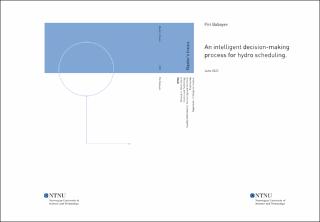| dc.description.abstract | In Norway hydropower plants are the leading source of electricity production - around 90% of all of the electricity produced. These hydropower plants are built around water reservoirs that generate energy by releasing the accumulated water. The decision when to do so falls upon the hydropower plant operators. As of today, this decision is usually done with hindsight, either based on the previous experiences, or letting the default settings stay as is. There is a strong motivation to optimize this process, to become more cost effective and rely less on other, unsustainable energy sources.
This thesis examines the possibility of utilizing machine learning techniques to predict correct commands given the information about the reservoir volume and inflow, as well as market prices. The historical data provided by 6 Norwegian hydropower energy producers. SINTEF’s SHOP (Short-term Hydro Optimization Program) was used to predict the best commands for the given case.
Utilizing TPOT to search a broad space, coupled with preprocessing the dataset using imbalancing data-sampling methods and feature engineering we show that moderate performance can be achieved. Comparing the commands predicted by machine learning pipelines with the default setting shows that a significant number of non-physical spill cases can be avoided, as well as moderate savings in calculations time and objective value. | |
